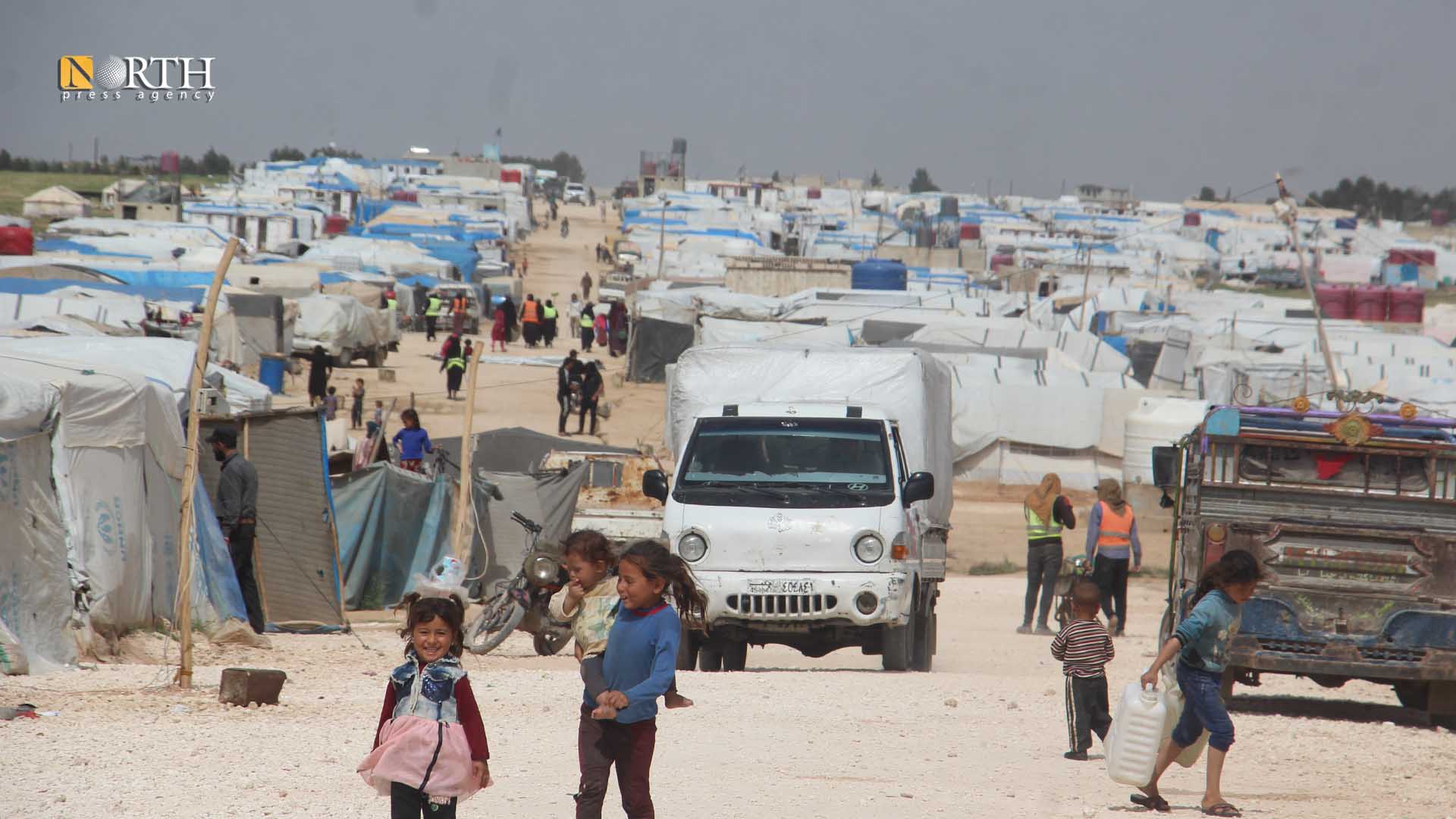MANBIJ, Syria (North Press) – IDPs living in the new East Manbij Camp, southeast of Manbij city, say that their living conditions are worsening as a result of cessation of aid by humanitarian organizations operating in the camp, in light of the complete lockdown with the advent of Ramadan month (Islamic holy month for fasting).
The cities of Raqqa, Qamishli, and Hasakah have been subjected to a complete lockdown against coronavirus since April 6, after which the Autonomous Administration of North and East Syria (AANES) decided to impose another complete lockdown for ten days in all its areas of control.
On Wednesday, AANES imposed a partial lockdown in its areas of control starting on Friday April 23 until April 29.
The partial lockdown is accompanied by another complete one in the areas of Jazira and Tabqa.
It is worth mentioning that with the implementation of the complete lockdown in the area, humanitarian organizations operating in the camp have stopped providing aid, which included foodstuffs and cleaning supplies, to IDPs.
The camp includes 599 families, most of which are from Maskanah and Deir Hafir in the countryside of Aleppo, who fled after Syrian government forces took control over their villages and towns in 2017.
Hussein al-Abaid, an IDP from Deir Hafir residing in East Manbij Camp, said that most IDPs need to secure their families’ basics, especially with the advent of Ramadan.
“So far, we did not obtain our monthly allocations and aid, which helped us a lot; now, in light of the lockdown, we cannot secure our daily basics,” the IDP pointed out.
Deir Hafir IDP Sa’eed Abdullah called for securing foodstuffs and preventative supplies against the coronavirus outbreak.
“In the camp we live in clusters and close to each other; we call for securing face masks and gloves, which we have not received for about a year,” he added.
Al-Abdullah stressed the necessity of sterilizing the camp as fast as possible and implementing preventative measures.
Meanwhile, co-chair of the camp Muhammad Mansour said that the shortage of support from humanitarian organizations operating in the Manbij “will be solved as soon as possible.”
“We met with the organizations’ management in Manbij and agreed on a new distribution method, taking into consideration the preventative measures against coronavirus,” he added, without elaborating about the method.
Regarding the sterilization of the camp, the administrator said that they are coordinating with the Health Committee and people’s Municipality in Manbij to allocate a sufficient amount of sterilization supplies and starting the sterilization process early next week.
About 46 cleaning workers are operating in the camp on a daily basis to clean the garbage inside the camp, according to Mansour.
In light of the complete lockdown, the camp management allows owners of some foodstuffs shops (which are 13) inside the camp to exit the camp and buy supplies for their shops.
The management allows humanitarian cases to exit the camp, which does not have a medical center, for treatment in either the clinic in the old East Manbij Camp or the city of Manbij.

